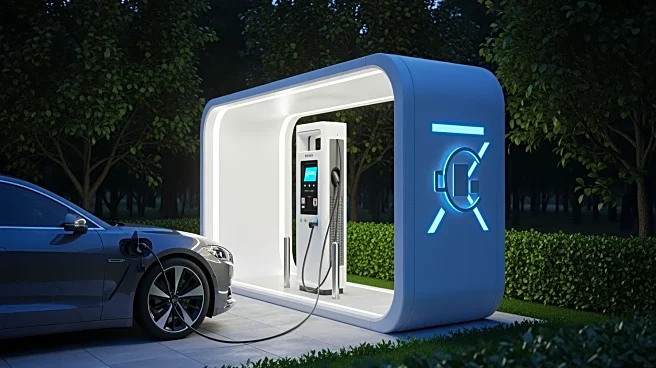What's Happening?
Uganda is strategically shifting towards becoming a global player in the electric vehicle (EV) market by implementing a 10-year income tax holiday for manufacturers of electric vehicles and batteries.
This initiative is part of a broader National E-Mobility Strategy aimed at transforming Uganda from a consumer to a net source of e-mobility solutions. The strategy includes local manufacturing targets, battery value chain localization, and electrification of public transport. The government has introduced various fiscal incentives, such as VAT exemptions on locally manufactured EVs and charging services, and zero-rated parts and materials for local manufacturing, while imposing a 25% import duty on fully built vehicles.
Why It's Important?
This development is significant as it positions Uganda to capitalize on the growing global demand for electric vehicles, potentially reducing its dependency on imported vehicles and alleviating environmental concerns. By fostering local manufacturing and innovation, Uganda aims to create a sustainable industrial ecosystem that could drive economic growth and job creation. The initiative also addresses the country's energy inefficiency and pollution issues, as older vehicles contribute to high fuel consumption and environmental degradation. The strategy could lead to a more robust automotive industry, enhancing Uganda's economic resilience and technological advancement.
What's Next?
The next steps involve nurturing existing small and medium enterprises (SMEs) to meet quality standards required for manufacturing plants, and de-risking key areas like the battery value chain to attract private sector investment. The government plans to support the development of a private-sector ecosystem, including truck assembly and electric motorcycle manufacturing. These efforts are part of Uganda's Vision 2040, aiming for upper middle-income status through science, technology, and innovation. Continued collaboration between government agencies and private entities will be crucial in achieving these goals.
Beyond the Headlines
The initiative reflects a broader trend of African nations leveraging fiscal policies to drive industrialization and technological advancement. Uganda's focus on e-mobility aligns with global efforts to reduce carbon emissions and transition to sustainable energy solutions. The strategy could serve as a model for other countries seeking to develop their automotive industries and reduce environmental impact. Additionally, the emphasis on local content and manufacturing could foster innovation and skill development, contributing to long-term economic stability and growth.










